|
|
|
|
1. Project Partner
Joined for a Better Environment
- Puerto Rico Water Resources and Environmental Research Institute
- UPRM's Campus Verde initiative
- Puerto Rico Manufacturers Association
- Rotary Club of Añasco
- Municipality of Añasco
2. Researchers

Jorge Rivera Santos, Ph.D.
PRWRERI Director University of Puerto Rico Mayagüez Campus jorge.rivera40@upr.edu
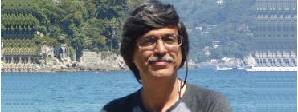
Walter Silva Araya, Ph.D.
PRWRERI Associate Director University of Puerto Rico Mayagüez Campus walter.silva2@upr.edu

Moraima de Hoyos Ruperto Associate Professor College of Business Administration University of Puerto Rico Mayagüez Campus moraima.dehoyos1@upr.edu

Sandra Cruz Pol
Professor Department of Electrical and Computer Engineering University of Puerto Rico Mayagüez Campus cruzpol@ece.uprm.edu
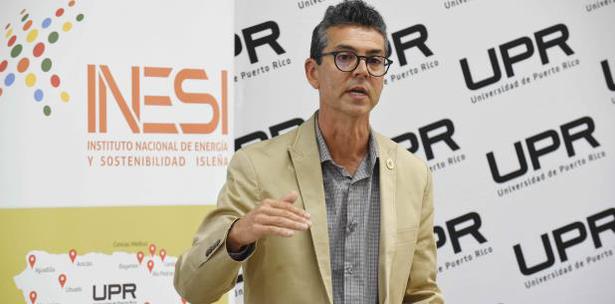
Lionel R. Orama Exclusa
Professor Department of Electrical and Computer Engineering University of Puerto Rico
University of Puerto Rico Mayagüez Campus lionel.orama@upr.edu
3. Students

April D. Salcedo Boatman Bachellor Degree: Business Administration with a major in Accounting
Graduate Student: Master's in Business Administration with a concentration in Finance
Expected Graduation Date: Dec 2019
e-mail: april.salcedo@upr.edu
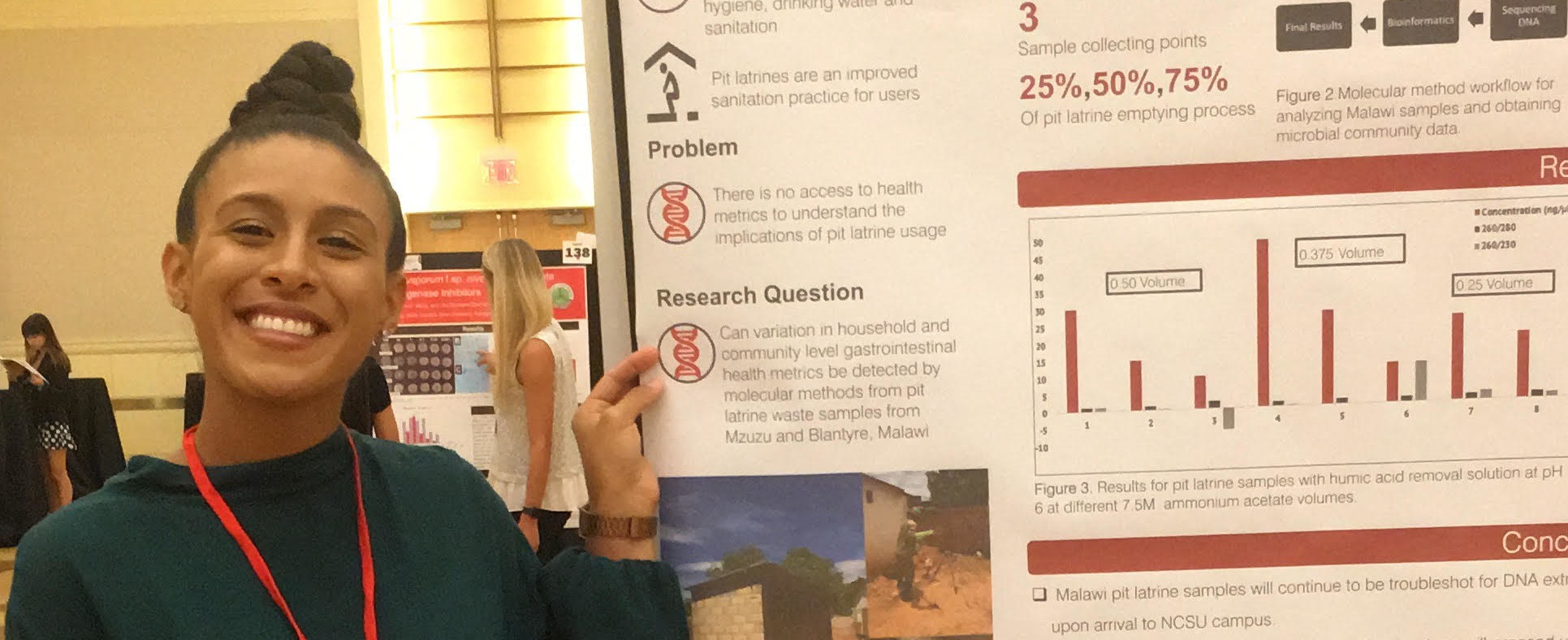
Yashira M. Valentín
Graduate: Civil Engineering
Bachellor Degree: Civil Engineering
Expected Graduation Date: May 2020
e-mail: Yashira.valentin2@upr.edu

Keyshla J. Maldonado
Bachellor Degree: Civil Engineering
Expected Graduation Date: Dec 2020
e-mail: keyshla.maldonado1@upr.edu

Rolando J. Casado Landron
Bachellor Degree: Electrical Engineer with concentration in Power Systems
Graduation Date: May 2018
e-mail: rolando.casado@upr.edu

Orlando Díaz
University of Puerto Rico at Mayagüez

José Rodríguez
University of Puerto Rico at Mayagüez

Karlos F. Gongón Fuentes
Concentration: Civil Engineering
Undergraduate Student: Civil Engineering
Expected Graduation Date: May 2020
e-mail: karlos.gongon@upr.edu

José C. Rodríguez Santiago
Concentration: Electrical Engineering
Undergraduate Student: Electrical Engineering
Graduation Date: May 2019
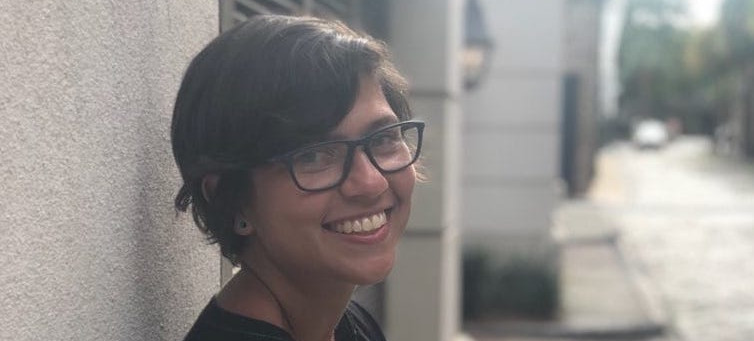
Julianna La Lane Machado
Concentration: Mechanical Engineering
Undergraduate Student: Mechanical Engineering
Expected Graduation Date: May 2020
e-mail: juliana.la@upr.edu<

Kaitlyn Nieves Sierra
Concentration: Chemistry
Undergraduate Student: Chemistry
Expected Graduation Date: May 2020

Victor M. Vargas Lugo
Bachellor Degree: Geology
Bachellor Degree: Civil Engineering
Master Degree : Water Resourses Engineering
Ph.D. Student: Water Resourses Engineering
Graduation Date: December 2018
e-mail: victor.vargas2@upr.edu

Francisco J. Rodriguez Santos
Bachellor Degree: Environmental Engineering
Master Degree : Water Resourses Engineering
Graduation Date: July 2019
e-mail: francisco.rodriguez43@upr.edu

Felix L. Santiago Collazo, E.I.T.
Bachellor Degree: Civil Engineering
Graduate Student: Water Resourses Environmental Engineering
Graduation Date: December 2017
e-mail: felix.santiago10@upr.edu

Reinaldo Vásquez
University of Puerto Rico at Mayagüez

Diana Carolina Urego Rubio
Bachellor Degree: Civil Engineering
Graduate Student: Water Resourses Engineering
Graduation Date: December 2018
e-mail: diana.urrego@upr.edu
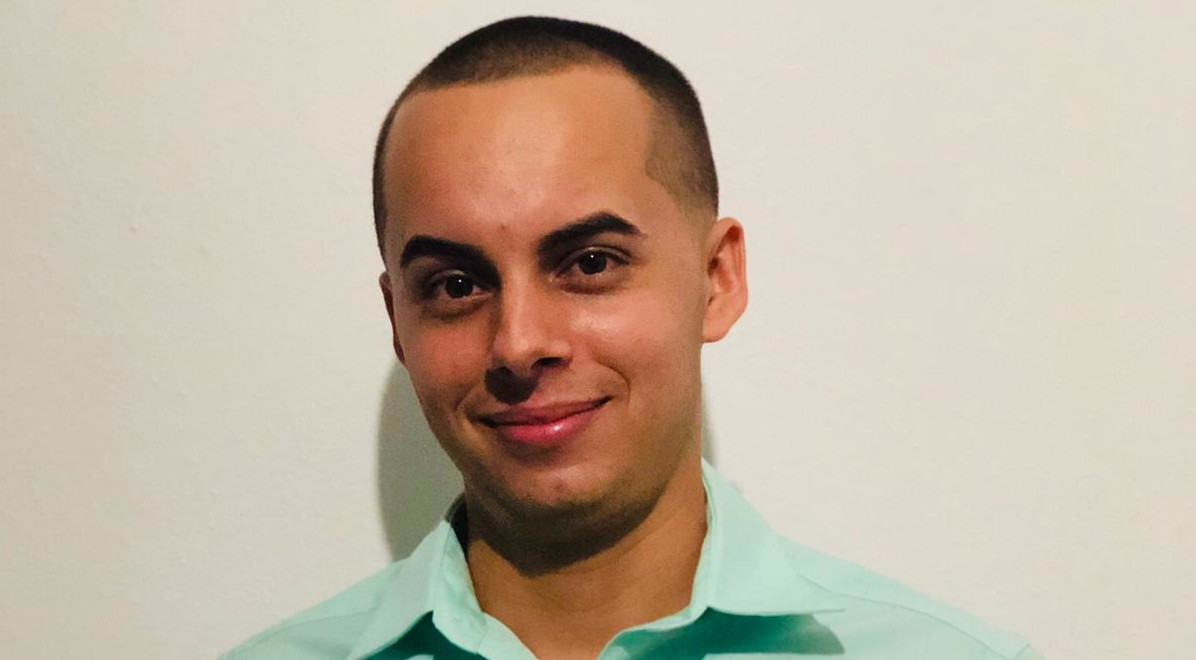
Cristian A. Rodríguez Cruz
Concentration: Civil Engineering
Undergraduate Student: Civil Engineering
Expected Graduation Date: May 2020
e-mail: cristian.rodriguez49@upr.edu<
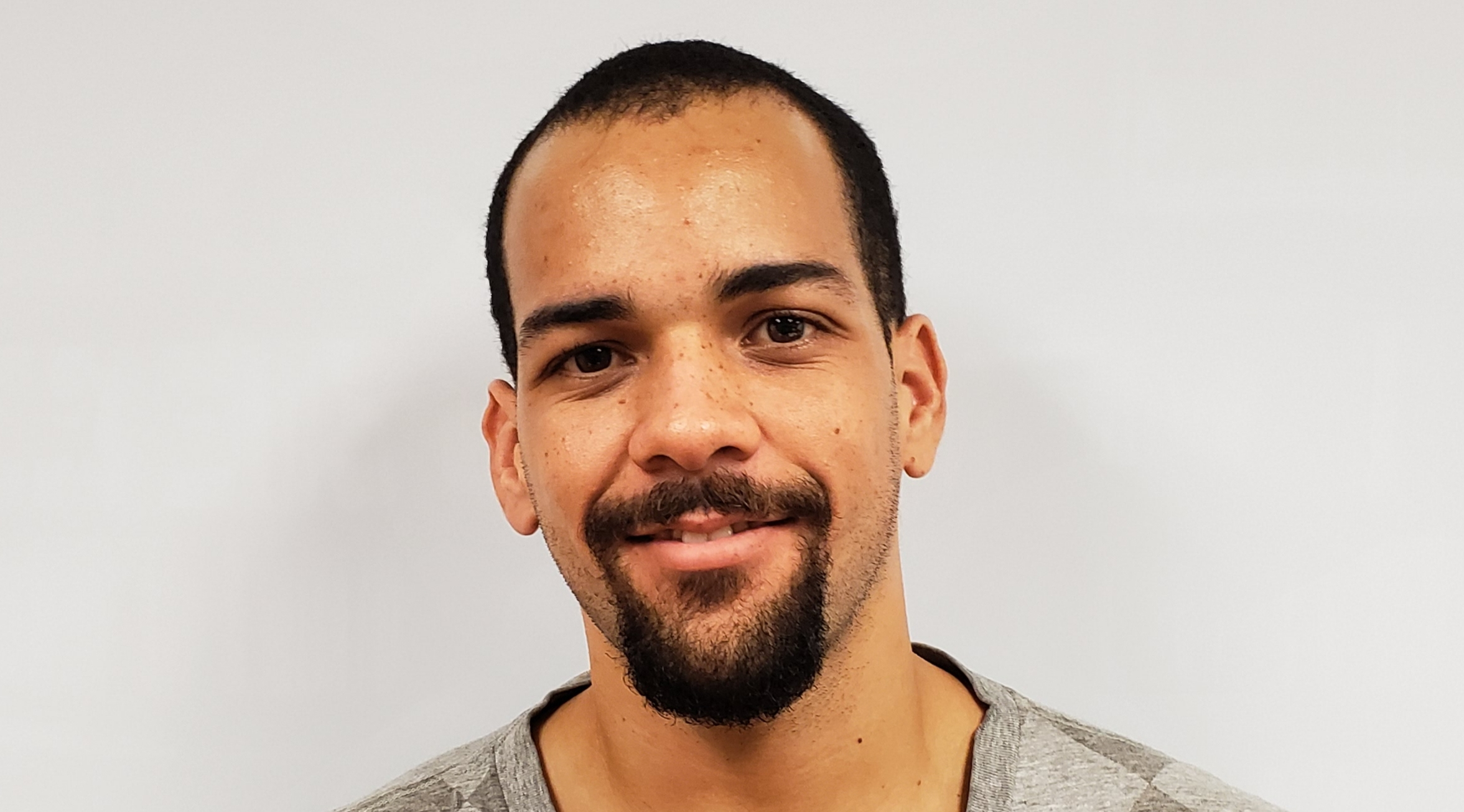
Jon A. Rivera Matta
Concentration: Agronomy and Topography
Undergraduate Student: Agronomy and Topography
Expected Graduation Date: May 2020
e-mail: jon.rivera@upr.edu

José G. Padilla Cabán
Concentration: Electrical Engineering
Undergraduate Student: Electrical Engineering
Expected Graduation Date: May 2019

Ángel A. Ruiz Lugo
Concentration: Civil Engineering
Undergraduate Student: Civil Engineering
Expected Graduation Date: May 2020

Oscar Martinez Pinilla, PE, Ph.D(c)
Bachellor Degree: Civil Engineering
Master Degree : Environmental Engineering
Ph.D. Student: Water Resourses Engineering
Expected Graduation Date: May 2020
e-mail: oscar.martinez4@upr.edu

Marietere Albino Lugo
Concentration: Electrical Engineering
Undergraduate Student: Electrical Engineering
Expected Graduation Date: May 2021
|
|
|
|
|
Pollution Prevention Best Practices in Puerto Rico
|
Duration: Jan 1, 2017 to Dec 31, 2018
Sponsoring Agency: United States Environmental Protection Agency (EPA)
Project Strategy, Technical Assistance
and Training Approaches
1. Project Narrative
This proposal is submitted by a partnership between the Puerto Rico Water Resources and Environmental Research Institute of the University of Puerto Rico at Mayagüez, UPRM's Campus Verde initiative, Puerto Rico Manufactures Association, the Rotary Club of Añasco, and the Municipality of Añasco. The proposal seeks to promote the reduction of pollutant generation in small businesses in a coastal municipality in western Puerto Rico. Sustainability-oriented tools will be developed that can be applied for continued work in Añasco and adapted for other municipalities in Puerto Rico. The project seeks to achieve measurable results in reducing greenhouse gases and pollution generation, conserving energy and water, and saving money for the small business sector. Three business types are targeted: food service establishments, beauty parlors and auto repair and maintenance shops. Those small business facilities were selected based on the main pollutants of concern previously identified in the MS4 Stormwater Management Plan for the Municipality of Añasco and the information provided in the Integrated Report - 303(d) List of Water Quality Limited Segments and 305(b) Surface Water Quality Assessment of the Puerto Rico Environmental Quality Board (EQB).
Four urbanized areas, or wards, have been identified as shown in Figure 1. These are Espino, Pueblo, Piñales, and Playa. A preliminary survey showed there are 61 food manufacturing establishments (restaurants, coffee shops, cafeterias, and food bars), 39 auto repair and maintenance shops (light mechanics, tire shops, auto parts and service, and oil and grease change services), and 20 beauty salons within these areas. This is typical for other similar areas in Puerto Rico.
In addition to the workshop material, a series of checklists and associated materials that the field audit staff can use while auditing each facility will be developed. The checklists will include specific questions and issues to consider for each audit type and for each of the three facility types.
Four experts will be conducting a 2-day regular classroom workshops and an additional 2-day field exercise to train field audit staff. The field exercise will include pre-arranged visits to several facilities to train staff on how to conduct the audit, what questions to ask, what issues to look for, and what documentation should be completed. In addition to training on water conservation, stormwater, and energy efficiency, the field exercise will also address audit procedures such as how to introduce and explain the audit to business owners, how to handle identified issues, and how to document their findings.
Field audits will be carried out on water and energy uses, as well as in business operations. These data will be analyzed and summarized in a report including technical recommendations on water conservation, energy efficiency, stormwater pollution prevention, and wastewater minimization. Tailored educational material targeting this specific business sector and a Pollution Prevention Training Series will be developed for the business owners and general community. In summary, four 20-30 minute webcasts will be developed, one for each of the four main topic areas: (a) Water conservation, (b) Wastewater minimization & management, (c) Stormwater pollution prevention, and (d) Energy conservation. The webcasts will be presented live once in Spanish and recorded and archived for future reference. PowerPoint® presentations and training materials will be provided in both Spanish and English.
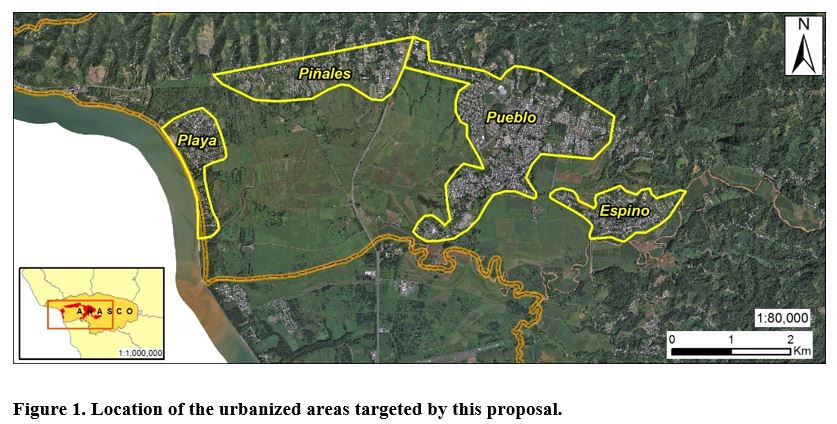
2. P2 National Emphasis Areas (NEAs) and Regional Priorities (RPs)
Regional priorities were established to cover all three NEAs. This proposal is developed to cover and emphasize all three NEAs and RPs. The proposed work targets the service sector in Puerto Rico (beauty parlors and auto repair/maintenance shops) to promote efficient use of water and energy and reducing greenhouse gases emissions covering RP#1 and NEA #1.
RP#2 is covered by targeting small business food service establishments in Puerto Rico and promoting efficient use of water and energy and reducing greenhouse gases emissions. Accomplishing RP#2 covers NEA #2.
The proposed educational material and activities will include green engineering and green chemistry approaches to modify small business operations in the three businesses type targeted by the proposed work. These activities will be accomplished by the Campus Verde program at UPRM and covers RP#3 and NEA#3.
3. Staff Roles and Responsibilities
The following staff will contribute their time and expertise to the administration of the grant and the success of the project.
Dr. Rivera-Santos will serve as the primary contact and principal investigator, providing administration and strategic direction of the project. He will coordinate all technical reporting efforts and collaboration with the partner institutions, and administrative offices at UPRM.
Dr. Walter Silva-Araya will assist the director in the administration and strategic direction of the project. In addition, Dr. Silva will provide his knowledge as a water resources engineering for the development of educational material related to stormwater runoff pollution prevention. He will assist the supervision of students doing water conservation audit and subsequent data analysis.
Dr. Sandra Cruz-Pol will be responsible for all energy conservation trainings and will train students to carry out energy audits at the businesses targeted in this proposal. She will contribute with energy conservation material for the educational and webcast videos. Dr. Sandra Cruz-Pol will be responsible for all energy conservation trainings and will train students to carry out energy audits at the businesses targeted in this proposal. She will contribute with energy conservation material for the educational and webcast videos. She will also advice on measures to reduce the ecological footprint and save money, such as eco-friendly alternatives for chemical products.
Dr. Moraima De Hoyos will provide strategic management and business operation audits support to the project. She will be responsible to develop the educational material, based on the business operation audits, and the train the trainer educational program on strategic management subjects to the targeted businesses and will coordinate training on strategic planning process for businesses in order to create a competitive advantage that will help them to reduce cost and maximize resources using P2 measures for water and energy conservation.
A hired private environmental engineering consulting firm (Contractor - a formal bid process will be conducted as per university regulations) will be responsible for developing and conducting the Train the Trainer Program to capacitate a team of 3 engineering graduated students, 3 undergraduate students (1 business administration and 2 engineering students) and 3 municipal employees. In addition, the Contractor will collaborate with the University of Puerto Rico staff in analyzing the data gathered while conducting the pollution prevention audits to provide recommendations of Best Management Practices to be implemented by the Business owners and the general community, and to develop the On-Line Educational Tools on Water Conservation, Wastewater Generation Pollution Prevention, and Stormwater Pollution Prevention.
4. Proposed Strategy
The following tasks describe the proposed project strategy.
Task 1. Develop a 2 days "Train-the-Trainer" Educational Program to capacitate 3 graduate students, 3 undergraduate engineering or environmental science students and 3 municipal employees on Stormwater Pollution Prevention, Energy Efficiency, and water conservation audits, which will include wastewater audits where the facilities are not served by Puerto Rico Aqueduct and Sewer Authority (PRASA) centralized conventional sewer system. The Train-the-Trainer course will consist of a 2-day classroom session and 2-day field visit workshops. A team composed of consultants with expertise in stormwater, wastewater, and water conservation and university faculties with expertise in energy efficiency audits will oversee developing the training material and conducting the trainings. The training material will also include checklists that the students will use while conducting the field audits, both during the field workshops and during subsequent fieldwork.
Businesses owners will be trained by Green Campus of UPRM (or in Spanish, Campus Verde) on environmental and energy practices aimed at reducing greenhouse gas emissions. Since energy consumption is common to any business, the adoption of energy conservation and efficiency practices will be encouraged.
Task 2. Conduct the field audits in the four urbanized areas of the Municipality of Añasco (Espino, Pueblo, Piñales, and Playa; see Figure 1). UPRM students visited the areas to make an estimate of the number and type of businesses located in those wards, and approximately 120 (automobile maintenance/repair shops, beauty salons and food service establishments) were identified. This data will be supplemented with information available in the Municipal Business Patents office.
A four-people team, composed of three-student and a municipal employee, will conduct the water, energy, and business operation audits. The water use audits will provide the water use patterns and quantity used for each business type. Possible pollutant generation will be noted and source identified. Engineering undergraduate students will be trained to perform energy audits so that they can perform on-site audits to business and develop a report on recommended measures to reduce energy consumption. When energy conservation and efficiency practices are implemented among established businesses a 20% reduction in energy consumption is expected. We will calculate the reduction of greenhouse gases resulting from energy savings as a result of P2-counseling. Further opportunities for greenhouse gas reductions will depend upon equipment and processes at the specific business. P2-counselors will seek opportunities to recommend actions resulting in emission reductions of methane, carbon dioxide, nitrous oxide and fluorinated gases. Such reductions and gains in energy efficiency will encourage other business to obtain similar outcomes. These reductions will be measured in metric tons of carbon dioxide equivalent reduced (MTCO2Eq).
As part of the audits, trained students will collect data about the operation of the business. This information will be used to analyze business operation efficiency and a correlation to P2 measures will be established. Recommendations for implementing P2 measures that will increase long-term incomes will be identified and explained. It is expected that one audit per day will be conducted depending on student availability.
Task 3. Field data will be statistically analyzed by the students with the guidance of the consulting and professors team. Water and energy use patterns will be identified and educational material developed accordingly.
Task 4. A Water Conservation, Energy Efficiency and Stormwater Pollution Prevention Report will be developed including recommendations for each one of the business sectors (beauty salons, food services establishments, and automobile maintenance and repair shops).
Task 5. One business of each one of the 3 categories will be selected to implement a pilot demonstration project that will serve as an example and guidance for other business in this and other municipalities.
Task 6. Four Pollution Prevention On-line Webcast Trainings will be developed based on the audits and recommendations report. This training will be provided to the small business owners in the different regions of Puerto Rico and then will be available on-line in Spanish. An online webcast training will be coordinated and the 78 municipal recycling and MS4 SWMP implementation coordinators will be invited to attend.
Environmental/Human Health Concerns
In Puerto Rico, the cost of fossil fuel-generated electricity is currently over 26 cents a kilowatt-hour and depends mostly (99%) on fossil fuels and burning of heavy crude oil. The commonwealth-owned power authority has little incentive to use renewables, although small scale solar photovoltaics could likely be achieved for 12 cents a kilowatt hour or less. This condition has a very high carbon footprint and creates air pollution. The high cost of energy (often twice the cost of energy in the states as shown in Figure 2-Right) negatively affects the expendable income of the community.
The immediate surroundings of the project area have been identified as environmentally sensitive. Rio Grande de Añasco flows south of the urbanized areas receiving polluted runoff from these businesses and from malfunctioning septic systems used by them. A nearby USGS water quality station consistently shows high concentration of fecal coliforms and other heavy metal pollutants. PRASA's water intake, which supplies raw water to the filtration plant servicing Mayaguez and Añasco, is located downstream from this water quality station.

Environmental Results and Measurement
Through the implementation of this project, the PRWRERI expects to achieve the following outputs:
- Energy Efficiency, Water Conservation, Business Operations, and Stormwater Management Audits.
o Measurable Goal - completing at least 120 audits (61 Restaurants, 39 Automobile Maintenance and Repairs Shops, 20 Beauty Salons).
- Engineering, business and environmental science graduate and undergraduate students, and municipal employees trained on Pollution Prevention Best Practices and Audits Process.
o Measurable Goal - Training 3 graduate, 3 undergraduate students and 3 municipal employees.
- Business Owners Trained on Pollution Prevention Practices within the Municipality of Añasco (Area of Study)
o Measurable Goal - Training 50% of Business Owners Audited (31 Restaurants, 19 Automobile Maintenance and Repairs Shops, 10 Beauty Salon Owners).
- Pilot Projects Implementing P2 recommended practices
o Measurable Goal - At least 1 Commercial Facility of each type of audited business will implement recommended practices (1 Beauty Salon, 1 Restaurant, 1 Automobile Maintenance and Repair Shop)
- Transferability - Amount of Business Owners Trained on P2 Practices island wide
o Measurable Goal - Training approximately 400 Business Owners in different regions (west, east, north, south, and central regional areas).
- Perpetuity - Amount of Business Owners Trained on P2 Practices through the online-webcast trainings that will be developed for PRMA Training Academy.
o Measurable Goal - Training more than 100 Business Owners yearly on P2 Best Practices and over 100 hits per month from visitors to the PRMA Training Academy and PRWRERI Websites to download Educational Material on P2 Practices are expected.
During the audits, the team will collect information on existing and recommended energy, water conservation, and stormwater pollution prevention practices that can be used to estimate changes in energy and water use, as well as source reduction. In addition, as part of the MS4 SWMP implementation, the EQB water quality data will be monitored and the water quality of the stormwater sewer system's main outfalls discharges will be monitored. Using the storm sewer system infrastructure maps the capitation area for each outfall could be related to the pollution prevention improvements made in a specific sector.
Pollution Prevention Outcomes: Through resources provided through the facility audits, meetings, training, peer-to-peer mentoring, and onsite technical assistance, it is anticipated the following P2 outcome measures will be achieved and documented; (a) A reduction in energy consumption resulting in a reduction of greenhouse gases emission, (b) A reduction in water usage, (c) A reduction in waste generation, (d) A reduction in the use of hazardous materials, (e) A reduction in wastewater generation, (f) A reduction in stormwater pollution, (g) An improvement in surface waters quality, and (h) A reduction in operational costs as a result of all of the above mentioned outcomes.
Equations, factors and assumptions used to calculate estimated P2 results
The following tables are self-explanatory and present assumption used for calculations.
Plan for tracking project progress
The PRWRERI will gather data from audits reports, business facilities utilities bills, and one to one meetings with business owners to determine current consumption of energy and water. Once the project is completed and the business owners are trained on P2 best practices, then follow up will be conducted to estimate energy savings and reductions in water use, hazardous materials, and waste generation. Measurable goals, activities and deliverables outlined in the scope of work and in this section will be delineated and tracked by the PI. Both outputs and outcomes will be compiled into quarterly reports and, at the end of the project, into a final report.
Partnerships
Three partner institutions were aligned to promote and assure this project success. These are the Puerto Rico Manufacturing Association (PRMA), the Rotary Club of Añasco and the Municipality of Añasco.
PRMA will contribute to the PRWRERI initiative by providing advertising, marketing and administrative support for the Train-the-Trainer Workshops that will be developed by a joint effort of the Contractor, the PRWRERI, and the University of Puerto Rico Staff. The 4 days Train-the-Trainer Workshop will include water conservation, stormwater pollution prevention, and energy efficiency audits procedures. The Train-the-Trainer Workshop will consist in a 2-days classroom workshop and a 2-days field exercise to capacitate field audit staff.
The Rotary Club of Añasco will collaborate lending their Club House facilities to conduct the classroom typical training sessions. In addition, the Municipality of Añasco will be providing reproduction services of the workshop materials including a series of checklists that the field audit staff will use while auditing each facility. The Rotary Club will also participate in a shared subvention project with the objective of developing and implementing a pilot project in one of the small business. The cost of their participation will not exceed the $5,000.
The Municipality of Añasco will also collaborate assigning 3 employees to be trained and will be conducting the audits with the UPR engineering or environmental sciences students. It is estimated that the audits will take 180 days to be completed.
UPR will be responsible for reproducing the Pollution Prevention Report that will be developed once the audits are completed and the data is analyzed. A Pollution Prevention Training Workshop will be developed based on the Pollution Prevention Practices that will be recommended to the audited business. A formal training workshop will be developed and provided to the business owners that will be participating in the project's audits. PRMA will be in charge of artwork development, promotional efforts through its direct marketing contact database and all matters related to registration.
In addition, it is our intention to provide the trainings to similar business owners across the island. PRMA will provide free-of-charge facilities at its HQ5 in Guaynabo for at least one (1) of the sessions. It will also help secure and coordinate facilities across the Island to guarantee the required program reach.
Transferability
PRWRERI, and PRMA, will join efforts to conduct the Pollution Prevention trainings in four different regional areas in Puerto Rico to transferring the knowledge developed to small business owners located island wide. In addition, the live audio webcasts and webinars will be available to PRMA's membership for future trainings on demand. Each live audio webcast or webinar is typically 1-2 hours and includes live question and answer, polling, feedback survey, PPT download during the event, and participation certificate. All educational material developed through this project will be available to the public from the PRWRERI's web page.
|
|